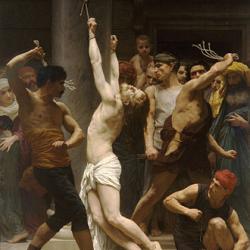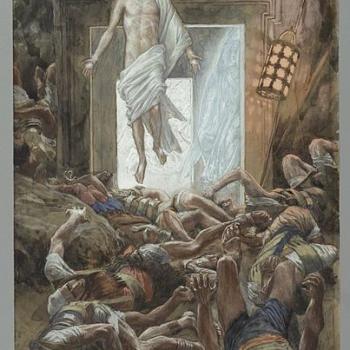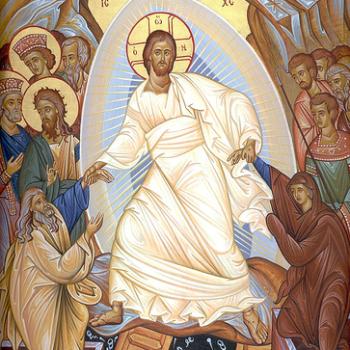Companions on the Journey
Holy Week 2022
The day before Palm Sunday, a few years back, I was in the confessional feeling the weight of my sins and just exhausted from the demands of young motherhood with three little ones under the age of five. I think the priest could hear the weariness in my voice, because he reminded me, “The Resurrection is almost here. During the next week, you get to walk with Our Lord to Easter. You’re in Jesus Time. Don’t give up.”
I’ve thought about this description of Holy Week many times since. From Palm Sunday to Easter Sunday, we get to walk alongside Jesus through death to new life. During the Triduum (Holy Thursday evening through Easter Sunday) we have a special opportunity in the liturgical year to journey in real time through the events of the Passion and Resurrection, or, as the priest in the confessional called it, “Jesus Time.” Teaching the Triduum in the Domestic Church – Word on Fire
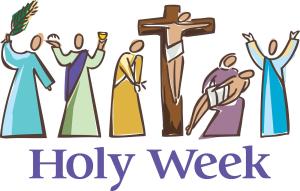
Monday, Tuesday, and Wednesday will be quiet days of foreboding and betrayal. Then come the three holiest days of the year, the Paschal Triduum: Holy Thursday, Good Friday, and Easter, the first celebration of which occurs at the Easter Vigil on Holy Saturday night. The word “paschal,” from the Greek pascha (derived from the Hebrew pesaḥ), means passage, and refers to the mystery of Jesus’ passage from death to life, from humiliation to glory, from this world into the kingdom of his Father. By our participation in the liturgy—and especially the rites of Holy Week—we enter into that mystery. The Lord’s passage becomes our passage too—provided we suffer with Him. Holy Week: Get Your Full Ticket’s Worth – OnePeterFive
Palm Sunday April 10, 2022
From the start, Jesus leaves us amazed. His people give him a solemn welcome, yet he enters Jerusalem on a lowly colt. His people expect a powerful liberator at Passover, yet he comes to bring the Passover to fulfilment by sacrificing himself. His people are hoping to triumph over the Romans by the sword, but Jesus comes to celebrate God’s triumph through the cross. What happened to those people who in a few days’ time went from shouting “Hosanna” to crying out “Crucify him”? What happened? They were following an idea of the Messiah rather than the Messiah.

They admired Jesus, but they did not let themselves be amazed by him. Amazement is not the same as admiration. Admiration can be worldly, since it follows its own tastes and expectations. Amazement, on the other hand, remains open to others and to the newness they bring. Even today, there are many people who admire Jesus: he said beautiful things; he was filled with love and forgiveness; his example changed history, … and so on. They admire him, but their lives are not changed. To admire Jesus is not enough. We have to follow in his footsteps, to let ourselves be challenged by him; to pass from admiration to amazement.
Palm Sunday (28 March 2021) | Francis (vatican.va)
Holy Monday April 11, 2022
What Was the Lord Doing on Monday of Holy Week?
According to Matthew 21:10-17, Mark 11:15-17, and Luke 19:45-46, Jesus returns to Jerusalem today. Seeing shameful practices in the Temple area, He cleanses it. The Gospels also recount His weeping over Jerusalem and His cursing of the fig tree. Matthew and Mark relate that He returned to Bethany that night. Msgr. Charles Pope, Community in Mission (adw.org)

The good news is that, as members of Christ’s Mystical Body the Church, we have access to the very same grace that transformed the infamous “Saul of Tarsus” (Acts 9:11) into “Paul, an apostle of Jesus Christ”
As we have now entered into Holy Week, the final preparation for the Sacred Triduum, let us resolve to follow the example of St. Paul and the entire “white-robed army of Martyrs” (Te Deum) so that when our time comes to depart from this life, we too may say in truth: “I have fought a good fight, I have finished my course, I have kept the faith” (2 Tim. 4:7).
Matt Gaspers Suffering for Christ: Reflections on Saint Paul (March 28, 2018)
Tuesday April 12, 2022
It is Tuesday of Holy Week. Jesus likely arises early, as did all the ancients. Days both ended and started early, at dusk and dawn, prior to the advent of electric lighting. They leave Bethany and head back to Jerusalem. Perhaps a few converts can be made before the transcendent events of the Passion begin.Msgr. Charles Pope Passiontide Chronology: Tuesday of Holy Week – Community in Mission (adw.org)
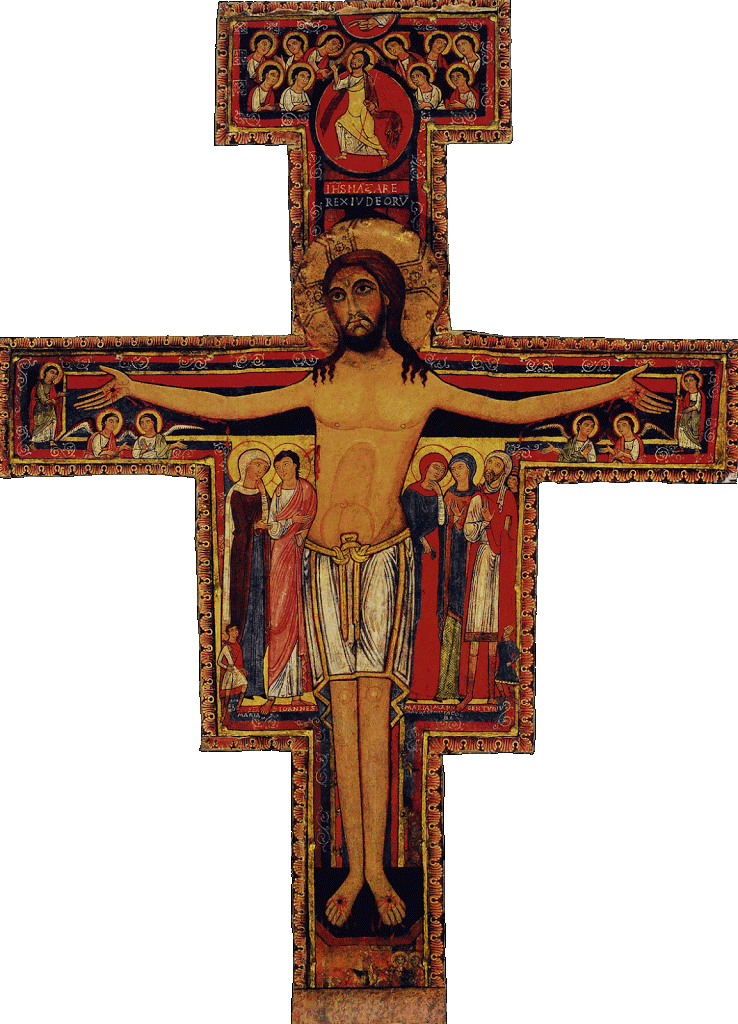
It is the cross which roots us in history, it is the cross which intersects the present and the past. The Tradition of the Church is not just the Incarnation, but the Passion, a redemptive sacrifice which is unchanging and yet made present anew with the dawning of each day. It infuses us, it grounds us, it propels us. And the world still needs its message: that “God so loved the world, that He gave His only begotten Son, that whoever believes in Him shall not perish, but have eternal life.”
That man, no matter how fallen, can be redeemed.
Steve Skojec, Our Unchangeable Faith: Catholicism as a Cultural Force (January 7, 2014) CatholicVote
Spy Wednesday April 13, 2022
Two momentous days have passed: On Monday there was the cleansing of the Temple and the laments over Jerusalem’s lack of faith; Tuesday featured exhaustive teachings by Jesus and interrogations by His opponents.
Today, Wednesday, it would seem that Jesus stays in Bethany.
Msgr. Charles Pope Passiontide Chronology: Wednesday of Holy Week – Community in Mission (adw.org)

Judas’s restless heart is tormented by concupiscence and tormented by the love of Jesus – a love that failed to become love – tormented by this fog, he goes back to the priests and asks for forgiveness, asks for salvation. “What is that to us? It is your responsibility…” (see Mt 27:4): the devil speaks like this and leaves us in despair.
Let us think of the many institutionalised Judases in this world who exploit people. And think also of the small Judas that each one of us has within at the hour of choice: between loyalty or interest. Each one of us has the ability to betray, to sell, to choose for one’s own interest. Each one of us has the opportunity to let ourselves be attracted by love of money or goods or future well-being. “Judas, where are you?” But I will ask each one of us: “You, Judas, the little Judas within me: where are you?” Judas, where are you? (8 April 2020) | Francis (vatican.va)
Today is traditionally called “Spy Wednesday” because this is the day that Judas Iscariot betrayed our Lord to the Sanhedrin. Judas became a spy for the Enemy. He watched Jesus and the Disciples and waited for the moment to betray them all, and he betrayed the Christ with a kiss.
In Matthew 26, Judas is confronted about his imminent betrayal of the Master. His reply is classic for those exposed of their crimes and sins: “Surely it is not I, Rabbi?”
The Gospel narrative asks all of us hard questions. We see ourselves as far removed from Judas Iscariot, but if we are honest, are we not more like him than we would care to admit? Do we not betray our Lord in so many little ways? Is our faith strong enough? Do we see him as the Christ, the Son of God, or do we impose our own view upon him, trying to make him into our own image and desires? Do we test him rather than trust him?
In the end are we also spies for the darkness?
Matthew Bunson, Spy Wednesday: Are We Spies for the Darkness? (Apr. 17, 2019) ncregister.com
Holy Thursday
April 14, 2022
The Eucharist. Service. Anointing. The reality we live today in this liturgy is the Lord who wants to remain with us in the Eucharist. And we always become tabernacles of the Lord. We bear the Lord with us to the point that he himself tells us that if we do not eat his body and drink his blood, we will not enter the Kingdom of Heaven. This is the mystery of the bread and wine of the Lord with us, in us, within us.
Full Text: Pope Francis’ Holy Thursday Homily | Catholic News Agency
Alongside the Crucifixion, the Eucharist–and specifically the Real Presence, the literal transformation of the bread and wine into the Body and Blood of Christ–was one of the aspects of Catholicism which first drew me to the faith. I could tell you that it was because the Catholic doctrine seemed most responsive to the Gospels; I wrote a paper, back when I was the only atheist in my History of Christian Doctrine section, arguing that Jesus’ words at the Last Supper, when you consider His insistence in the face of horrified disbelief in John 6:52 – 57, wasn’t simply a metaphor like “I am the vine.” But I have to admit that I loved (and love!) the doctrine of the Real Presence largely because it’s visceral, bizarre, bloody-minded. It seems like the kind of overturning, catastrophic, violent thing the God of Exodus and Good Friday would do–the kind of awful thing our world and our actions would require of Love. It is hardcore.
Eve Tushnet, Breaking of the Bread (March 26, 2019 Eve Tushnet
Angela Clough@angeladunn6: Clearing out some things from the loft to see that 9 year old (Catholic-schooled) me was a bit of a comedy genius �
…Perhaps not a spelling genius though!

Good Friday
April 15, 2022
St. Gregory the Great said that Scripture “grows with its readers”, cum legentibus crescit.[1] It reveals meanings always new according to the questions people have in their hearts as they read it.
The cross is better understood by its effects than by its causes. And what were the effects of Christ’s death? Being justified through faith in him, being reconciled and at peace with God, and being filled with the hope of eternal life! (see Rom 53:1-5).
The cross of Christ has changed the meaning of pain and human suffering—of every kind of suffering, physical and moral. It is no longer punishment, a curse. It was redeemed at its root when the Son of God took it upon himself. What is the surest proof that the drink someone offers you is not poisoned? It is if that person drinks from the same cup before you do. This is what God has done: on the cross he drank, in front of the whole world, the cup of pain down to its dregs. This is how he showed us it is not poisoned, but that there is a pearl at the bottom of it.And not only the pain of those who have faith, but of every human pain. He died for all human beings: “And when I am lifted up from the earth,” he said, “I will draw everyone to myself” (Jn 12:32). Everyone, not just some!
Full Text: Pope Francis’ Good Friday Homily – Viva Pinas

PASSION
Oh, Holy Jesus for us died,
To kiss Your wounds when crucified
To sooth the injuries of your bleeding head
To caress your feet as they bled.
To kneel in awe at the foot of the cross
As lots for your garments they did toss.
Blood droplets fell to the ground
With piercing thorns you had been crowned.
To hear Your prayer as You died.
Oh how on this thought I have cried.
Your holy body hung up there
For anyone to stop and stare.
Your painful death was died for me.
Oh My Savior how can I thank thee?
I am wretched sinner you know.
But Lord to who else would I go?
Your sacrifice has won me life
When I’m done this exile strife
Forgiveness of my sins You have granted me.
Your mercy gives my joy and life eternally.
Holy Saturday
April 16, 2022
The grave is the place where no one who enters ever leaves. But Jesus emerged for us; he rose for us, to bring life where there was death, to begin a new story in the very place where a stone had been placed. He, who rolled away the stone that sealed the entrance of the tomb, can also remove the stones in our hearts. So, let us not give in to resignation; let us not place a stone before hope. We can and must hope, because God is faithful. He did not abandon us; he visited us and entered into our situations of pain, anguish and death. His light dispelled the darkness of the tomb: today he wants that light to penetrate even to the darkest corners of our lives. Dear sister, dear brother, even if in your heart you have buried hope, do not give up: God is greater. Darkness and death do not have the last word. Be strong, for with God nothing is lost! Full text of Pope Francis’ homily of Holy Saturday: On our right to hope (aleteia.org)
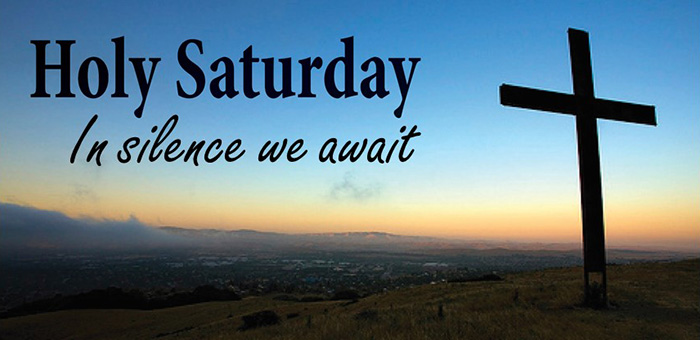
In my opinion, Holy Saturday is the hardest day of Holy Week to really “enter into.” Is it a day of mourning? Not exactly. A day of rejoicing? Again, not exactly. The best description I’ve heard it is that it is a day of “quiet hope.” Here are some aids to cultivate a spirit of quiet hope as we make the massive transition from Good Friday to Easter Sunday, and as we commemorate Christ’s “harrowing of hell”.
Joe Heschmeyer Holy Saturday Soul Booster, Shameless Popery









